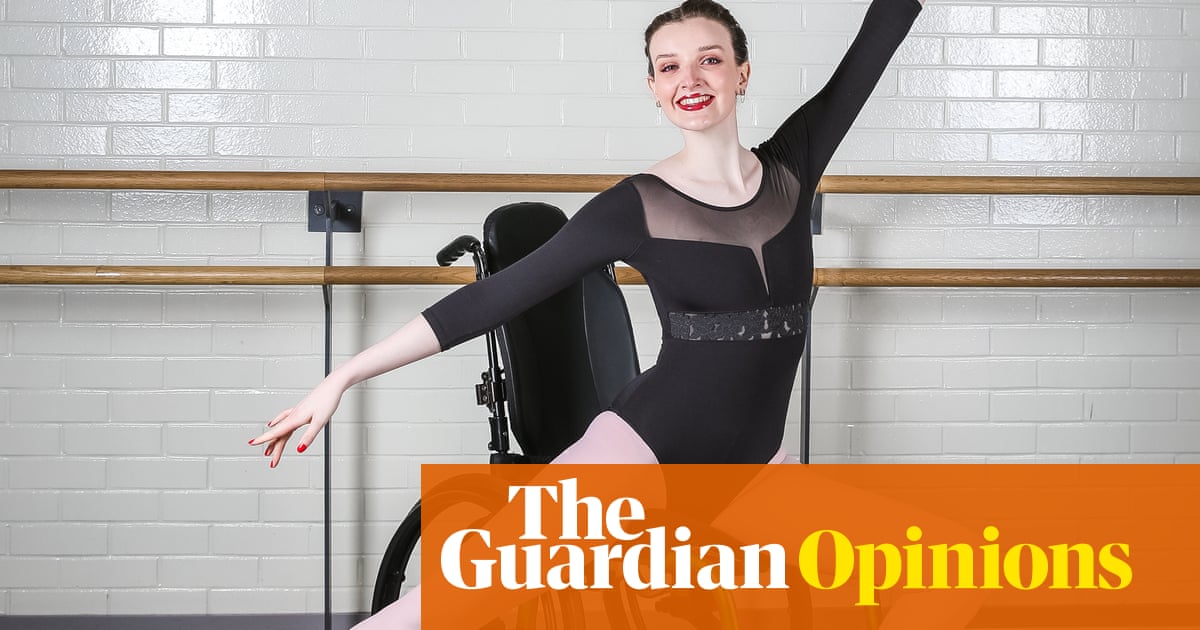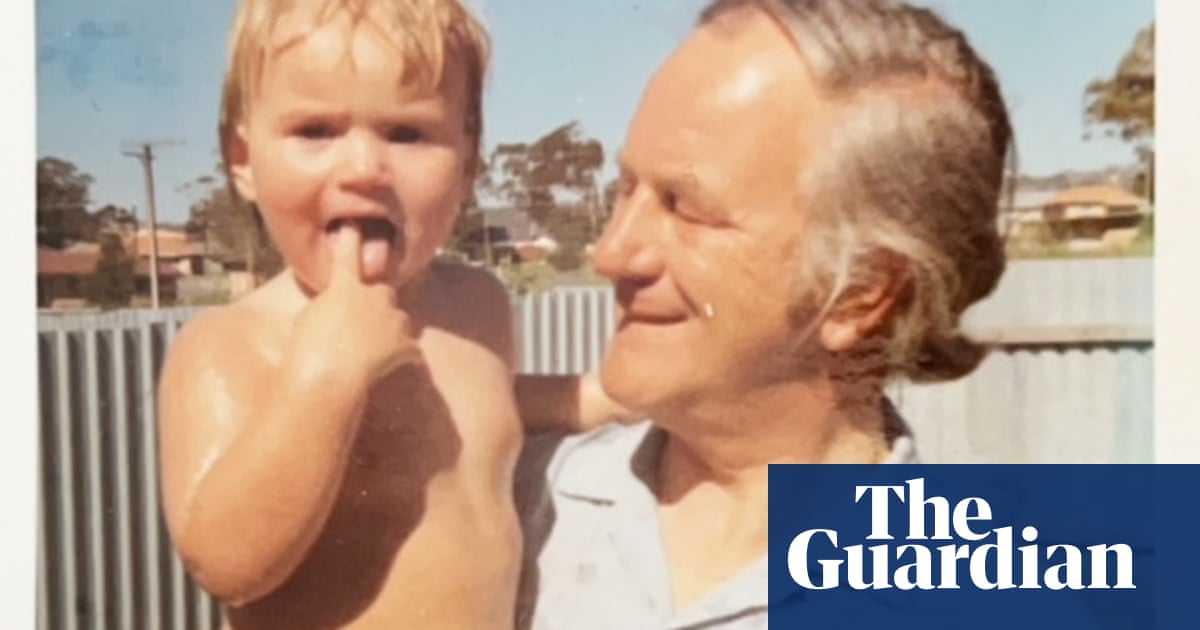
It took a few years, even after they had learned to talk, for my daughters to notice my wheelchair or ask me about it. Children are amazing that way. They don’t discriminate at a fundamental level. When my oldest, Poe, was learning her letters. Her p, d, b and q’s were undistinguishable, because really why should orientation matter? She unerringly knew which one she had drawn. There is an age, too, that magic tricks were wasted on them. Why shouldn’t a little red ball disappear from my hand and appear inside an upturned cup? Shouldn’t all fathers come with wheels? For several years, I was drawn without my wheelchair alongside their mum and sister. I was the large stick figure with a square of black hair on the top. When my wheelchair did appear in their drawings, I felt a twinge of regret. Not because I have negative feelings about my wheelchair as a representation of my disability. Quite the opposite: my wheelchair is a part of me. My life would be significantly poorer without it. The feeling passed, but came from the fear that the girls would see my chair first and me second, which is how it goes mostly.
Previously, for the girls, the wheelchair was what they used to “cruise” when they were learning to walk. I would lock my brakes so that they could pull themselves up and, while holding on to my chair, they circled me as they figured out the mechanics of their legs. Or, it was just another plaything to push around, with or without Dad in it. Currently, aged four and five, they are coming to understand how the wheelchair is related to my disability. Poe is asking questions. Lots of questions. She wants to know the details of how I got into a wheelchair. I’ve had these conversations with enough strangers lacking in propriety or manners, so I have my answers at the ready. She wants to know the colour of the car that hit me and why I didn’t look both ways when I crossed the street. Hedy Lu is a year younger and a different personality. She is trying to understand what my disability means by doing things like walk up steps, skip or twirl her dress and say, “You can’t do this ’cause you in a wheelchair.” After about a dozen of those, I do lose my patience. I jokingly say, “Well, you can’t read or pour milk by yourself.”
Like Hedy Lu, people wrongly think my difficulties arise from the things I can or cannot do. They get fixated. They are eager for me to do things I had no interest in when I was at the height of my stair-game. I’ve learned not to mention things I could do before my car accident. Mention hiking and people will make it their life’s work to shove you up a hillside. Their hearts are in the right place but, honestly, I’m fine with Snowdon not having grab bars all the way to the top. It’s hard to convince the able-bodied that you are indeed fine. They see the wheelchair and overestimate how much the things upstairs matter in their lives.
For the first couple of years, I had to adjust my sense of self that assumed two working legs, which is way harder than popping a wheelchair off a kerb or using an escalator. I’ve been in a wheelchair now longer than I have not. And apologies for going full-American here, but I’ve done some awesome things in it. I’ve travelled around the world, earned a PhD and written a book. Incredibly, when you tell people that being in a wheelchair is not a big deal, a percentage will reject my explanation as “putting on a brave face”. The able-bodied don’t like it when you tell them your disability isn’t as significant as they project it to be. They need you to conform to their stereotype and they’ll not have an actual disabled person spoiling their fun, thank you very much. The cliché of seeing the disability before the person is a cliché for a reason. I suppose that is why I flinched when the chair appeared in my daughter’s drawings. “Not you as well” was my fear.
All those amazing feats I was bragging about, my wife, Sarah, was there beside me. She knows what I’m capable of which, on one hand, is great. On the other, quite annoying, like when I want a drink from the kitchen, but I’m too lazy to get it myself. After her maternity leave was over, it made sense for our family that my wife went back to work, and that I, the man in a wheelchair, stayed home with the girls. She knew, before I did, that I would be a good dad.
I am proud of my ability to manage two small children from a wheelchair. When it was just Poe, the neighbourhood aunties of Bethnal Green in London would stop me to say three things: “Your baby is cold”, “Where’s mum?” and “You’re a good dad.” When Hedy Lu arrived a year later, it was shortened to “Good dad!” We bought a jogging pram, a long three-wheeled affair, because I could push it by myself. Holding the pram with one hand, I pushed the rims of my chair with the other. Like a canoeist, I switched from side to side to push us all in a straight line. Little Hedy Lu would be buckled into the pram and the more stable toddler Poe would be seat-belted into my chair with a repurposed seatbelt from a Vauxhall Chevette. As a wheelchair user, you become an expert in topography and I always knew which route avoided steps, uneven pavement and traffic, so that I could get some speed going with Poe always encouraging, “Go faster!” Momentum is your friend when managing 30kg in babies and wheeled equipment. The hill over by Broadway Market always got looks of astonishment, maybe concern, as we zoomed down it, all three of us squealing.
No, it’s not my lack of ability that is the most difficult part of being disabled for me. It’s the fear and it’s a fear that comes from vulnerability. Maybe disability has made me a better parent to my girls. I understand keenly why babies are such inconsolable and miserable bastards sometimes. Their lives, too, are filled with can’t. They can’t express their most basic needs. They can’t move around to satisfy their wants. They are dependent on knuckleheads. On the occasions they achieve something they desire, like sticking a power cord in their mouth, we take it away and shout at them. Vulnerability fills your head with worst-case scenarios. I think, what if I tip over with the girls in my lap? They think, what if Dad leaves the room and he never comes back? It creates a base level of fear and anxiety that the able-bodied and adults don’t have. I have patience with their toddler frustrations and I try to give them as much autonomy as I can.
With parenting came new vulnerabilities and new fears. Maybe again, the disability has been a unique boon for a stay-at-home dad. I’ve had 20 years to accommodate vulnerability into my sense of self as a man. Obviously, there are things I cannot do as a disabled parent. For example, the coffee shop we regularly went to had awkwardly uneven steps, so, from the age of two, I sent in my daughters with my credit card to order their babycinos and my papacino, an espresso. The sand at Victoria Park playground was nearly impossible for me to move through. The mums there were constantly helping my girls up slides or putting them into swings without asking me or them. It was never clear if it was because I’m a man or a man in a wheelchair that they assumed incompetency. However, the girls loved the playground and I don’t want my limits to be theirs. I loved watching Poe deliberate on where to place her feet, careful not to get into a position she couldn’t get out of. The more daring Hedy Lu wobbled up the steps of a slide in the “big kid” playground before she was fully walking. I understood that the slide was not too high for her. It is too high for me. The anxiety was mine so I swallowed it.
I’m afraid that the girls are going to get hurt. It’s a fear of all parents, wheeled or walking, but that fear gets muddled in with the stigma of being disabled until they are hard to separate. I remember one time at the park, Poe was three, Hedy Lu was two. Poe started climbing a long set of stairs cut into a tall hill that led to several giant slides. Hedy Lu dutifully followed behind her older sister. I shouted for them to come back down. Poe ignored me as three-year-olds are inclined. They continued their ascent, until anger seeped into my voice.
“What would happen if you got hurt up there? No one would help you.” They both started to cry, but I continued. “You would be all alone up there.” How ugly and how untrue. One of those eager-to-help mums would be nearby and she’d have a first-aid kit replete with plasters, wound spray and even a chemical cold compress. I realised that it wasn’t them getting hurt that bothered me. It was my fear that if they got hurt, I would have to consider the possibility of being incapable of being a good dad. Despite my zipping down hills and pushing a pram from a wheelchair, there is the fear of my inability, my disability, which makes my children vulnerable. Instead of working through the wrong-headedness of that, I was pushing that burden on to their tiny shoulders rather than carrying it on mine.
I know Poe will move on with her questions and Hedy Lu will come to understand my limitations around stairs and dress-twirling. They already know that their dad is different from other dads. Right now, they think that it favours them because we can go down hills really fast. Maybe, at some point, they will be made to feel ashamed of me, and it will be hard for me to completely disagree. I can’t teach them to swim or hike Snowdonia and, as a parent, that feels like I’ve failed them. Hopefully, like Sarah, they’ll have a better appreciation of what I’m capable of than I do myself.












